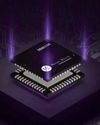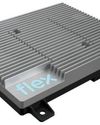
Most developers working with Bluetooth specifications focus on the release of the core specification. That's the foundation of Bluetooth, defining the radio, the protocols that transport data over the air, and the fundamental security mechanisms. The first release, Version 1.0, was back in 1999, when the Core included everything up to the application layer, including audio. When new applications were developed, these moved out into individual application profiles, which evolved independently over time. Significant new features in the Core resulted in new prime numbers for subsequent releases. Core 2.0 introduced enhanced data rates, potentially trebling the throughput. Core 3.0, now deprecated, allowed alternate radios, such as 802.11, to achieve higher data rates. Core 4.0 introduced the biggest innovation in 2010, adding Bluetooth LE, which introduced a redesigned radio to support much lower power applications.
Ten years later, in 2020, the release of Core 5.0 started the path to enabling audio over Bluetooth LE, with key innovations appearing in the following two releases. 5.1 brought in extended advertising, which would be key to broadcast applications, and 5.2 added isochronous channels, which enable audio transfer over a Bluetooth LE radio [1].
この記事は Circuit Cellar の February 2025 版に掲載されています。
7 日間の Magzter GOLD 無料トライアルを開始して、何千もの厳選されたプレミアム ストーリー、9,000 以上の雑誌や新聞にアクセスしてください。
すでに購読者です ? サインイン
この記事は Circuit Cellar の February 2025 版に掲載されています。
7 日間の Magzter GOLD 無料トライアルを開始して、何千もの厳選されたプレミアム ストーリー、9,000 以上の雑誌や新聞にアクセスしてください。
すでに購読者です? サインイン

Morse Micro Launches Highly Anticipated Second-Generation MM8108 SoC
Enabling improved spectrum efficiency to minimize interference in high-density environments, the MM8108 delivers class-leading data rates of up to 43.33Mbps using world-first sub-GHz 256-QAM modulation at an 8MHz bandwidth, making it ideal for a range of applications in agricultural, mining, industrial, home, and city environments.

NXP MCX MCUs and IDEs Cut Development Time
Development boards, such as NXP's FRDM platform for MCX A series MCUs, are revolutionizing embedded systems by integrating components for prototyping and innovation in the IoT landscape. These technologies streamline development, enhance flexibility, and reduce costs, enabling greater focus on software development while addressing complex challenges.

Asynchronous Programming in Flutter - Shallow Dive into Google's Mobile App Framework
This month, Bob continues his look at mobile app programming from the perspective of an embedded system designer. He begins a shallow dive into Flutter, the mobile app framework from Google, by describing his transition from React Native to asynchronous programming in Flutter.

Basic Pulse Circuits - Part 3: Metastability, Setting, or Resetting
In digital design, signal processing is crucial when dealing with asynchronous signals from sensors and level translators. In Part 1 of a three-part series, Wolfgang described how pulse circuits help digital circuits deal with pulse trains. In Part 2, he wrote about flip-flops, timing parameters and synchronization. In Part 3, he looks at how to mitigate metastability and ensure internal clock synchronization.

Infineon and Flex Showcase Zone Controller Design Platform for Software-Defined Vehicles
Infineon Technologies AG and Flex, a diversified global manufacturer and new preferred automotive design partner for Infineon, are showcasing the new Flex Modular Zone Controller design platform for software-defined vehicles at CES 2025.

Switching Regulator Efficiency - Minimize Power Consumption in Battery-Operated Systems
A switching voltage regulator converts input DC voltage into a desired output DC voltage. This month, Stuart delves into the factors that influence the efficiency of switching regulators, and why they are crucial for embedded applications. From understanding the role of inductors and transistors to exploring practical examples, this article offers valuable knowledge for anyone interested in optimizing power supply designs.

Learn Lisp Programming Using MCUs - Part 2: Extending µLisp with Custom Functions
In the second installment of this series, Raul delves into the world of µLisp and shows how to extend capabilities by adding custom functions such as \"pulsein\" and \"servo-create\", enabling developers to interface with ultrasonic sensors and control servomotors. In Part 1, Raul presented µLisp concepts and syntax, and extensions specific to MCUs.

CMake the Most of Software Development - Modern Build Systems Support Scalability
Discover how modernizing your build system with CMake can revolutionize embedded software development, offering unparalleled flexibility and efficiency. Dive into this article to explore the transformative benefits of CMake's cross-platform capabilities and how it integrates seamlessly with contemporary development practices.

Engineering Healthcare - Cutting-Edge Technologies to Enhance Patient Care
Explore the groundbreaking advancements in Pulsed Field Ablation technology, where engineering meets cardiac care to revolutionize atrial fibrillation treatment. This article delves into the intricate design and functionality of cutting-edge devices that enhance precision and safety in medical procedures, showcasing the vital role electronics play in shaping the future of healthcare.
